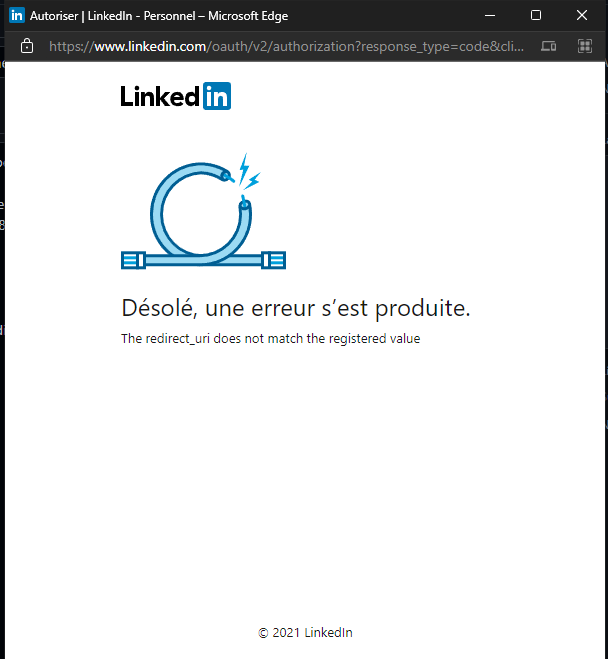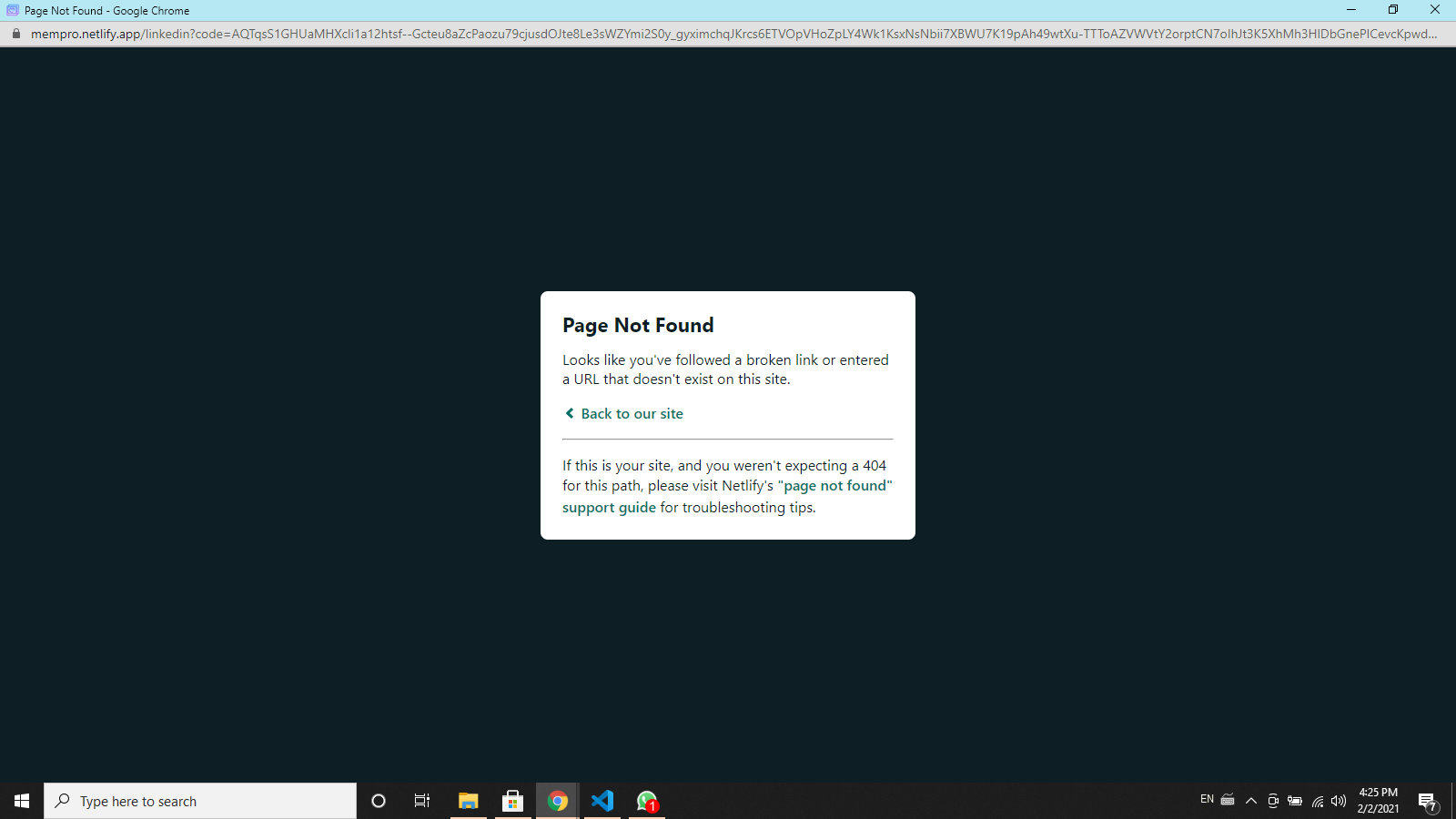react-linkedin-login-oauth2 VERSION 2 IS OUT. THIS IS MIGRATION GUIDE FROM 1 TO 2.
Demo: https://stupefied-goldberg-b44ee5.netlify.app/
This package is used to get authorization code for Linked In Log in feature using OAuth2 in a easy way. After have the authorization code, you can exchange to an access token by sending it to the server to continue to get information needed. For more details, please see at Authorization Code Flow (3-legged OAuth)
See Usage and Demo for instruction.
See CHANGELOG.md
npm install --save react-linkedin-login-oauth2@latest
We will trigger linkedInLogin by using useLinkedIn (recommended) or LinkedIn (using render props technique) after click on Sign in with LinkedIn button, a popup window will show up and ask for the permission. After we accepted, the pop up window will redirect to redirectUri (should be LinkedInCallback component) then notice its opener about the authorization code Linked In provides us. You can use react-router-dom or Next.js's file system routing
First, we create a button and provide required props:
import React, { useState } from 'react';
import { useLinkedIn } from 'react-linkedin-login-oauth2';
// You can use provided image shipped by this package or using your own
import linkedin from 'react-linkedin-login-oauth2/assets/linkedin.png';
function LinkedInPage() {
const { linkedInLogin } = useLinkedIn({
clientId: '86vhj2q7ukf83q',
redirectUri: `${window.location.origin}/linkedin`, // for Next.js, you can use `${typeof window === 'object' && window.location.origin}/linkedin`
onSuccess: (code) => {
console.log(code);
},
onError: (error) => {
console.log(error);
},
});
return (
<img
onClick={linkedInLogin}
src={linkedin}
alt="Sign in with Linked In"
style={{ maxWidth: '180px', cursor: 'pointer' }}
/>
);
}If you don't want to use hooks. This library offer render props option:
import React, { useState } from 'react';
import { LinkedIn } from 'react-linkedin-login-oauth2';
// You can use provided image shipped by this package or using your own
import linkedin from 'react-linkedin-login-oauth2/assets/linkedin.png';
function LinkedInPage() {
return (
<LinkedIn
clientId="86vhj2q7ukf83q"
redirectUri={`${window.location.origin}/linkedin`}
onSuccess={(code) => {
console.log(code);
}}
onError={(error) => {
console.log(error);
}}
>
{({ linkedInLogin }) => (
<img
onClick={linkedInLogin}
src={linkedin}
alt="Sign in with Linked In"
style={{ maxWidth: '180px', cursor: 'pointer' }}
/>
)}
</LinkedIn>
);
}Then we point redirect_url to LinkedInCallback. You can use react-router-dom or Next.js's file system routing
react-router-dom:
import React from 'react';
import { LinkedInCallback } from 'react-linkedin-login-oauth2';
import { BrowserRouter, Route } from 'react-router-dom';
function Demo() {
return (
<BrowserRouter>
<Route exact path="/linkedin" component={LinkedInCallback} />
</BrowserRouter>
);
}- Next.js's file system routing:
// pages/linkedin.js
import { LinkedInCallback } from 'react-linkedin-login-oauth2';
export default function LinkedInPage() {
return <LinkedInCallback />;
}- Support for IE is dropped from version
2
- Source code: https://github.com/nvh95/react-linkedin-login-oauth2-demo/blob/master/src/App.js
- In action: https://stupefied-goldberg-b44ee5.netlify.app/
LinkedIncomponent:
| Parameter | value | is required | default |
|---|---|---|---|
| clientId | string | yes | |
| redirectUri | string | yes | |
| onSuccess | function | yes | |
| onError | function | no | |
| state | string | no | randomly generated string (recommend to keep default value) |
| scope | string | no | 'r_emailaddress' |
| See your app scope here. If there are more than one, delimited by a space | |||
| children | function | no | Require if using LinkedIn component (render props) |
LinkedInCallbackcomponent:
No parameters needed
Please create an issue at https://github.com/nvh95/react-linkedin-login-oauth2/issues. I will spend time to help you.
Failed to minify the code from this file: ./node_modules/react-linkedin-login-oauth2/node_modules/query-string/index.js:8
Please upgrade react-linkedin-login-oauth2 to latest version following
npm install --save react-linkedin-login-oauth2Thanks goes to these wonderful people (emoji key):
Hung Viet Nguyen 💻 |
Nguyễn Duy Khánh 💻 |
YBeck 💻 |
Mehdi Raza 🤔 |
Phillip Denness 🐛 |
dsp.iam 🐛 |
Vitalii Bulyzhyn 💻 |
Pradeep Reddy Guduru 🐛 |
Uric Bonatti Cardoso 🐛 |
faisalur-rehman 📖 |
Ruslan 💻 |
This project follows the all-contributors specification. Contributions of any kind welcome!












